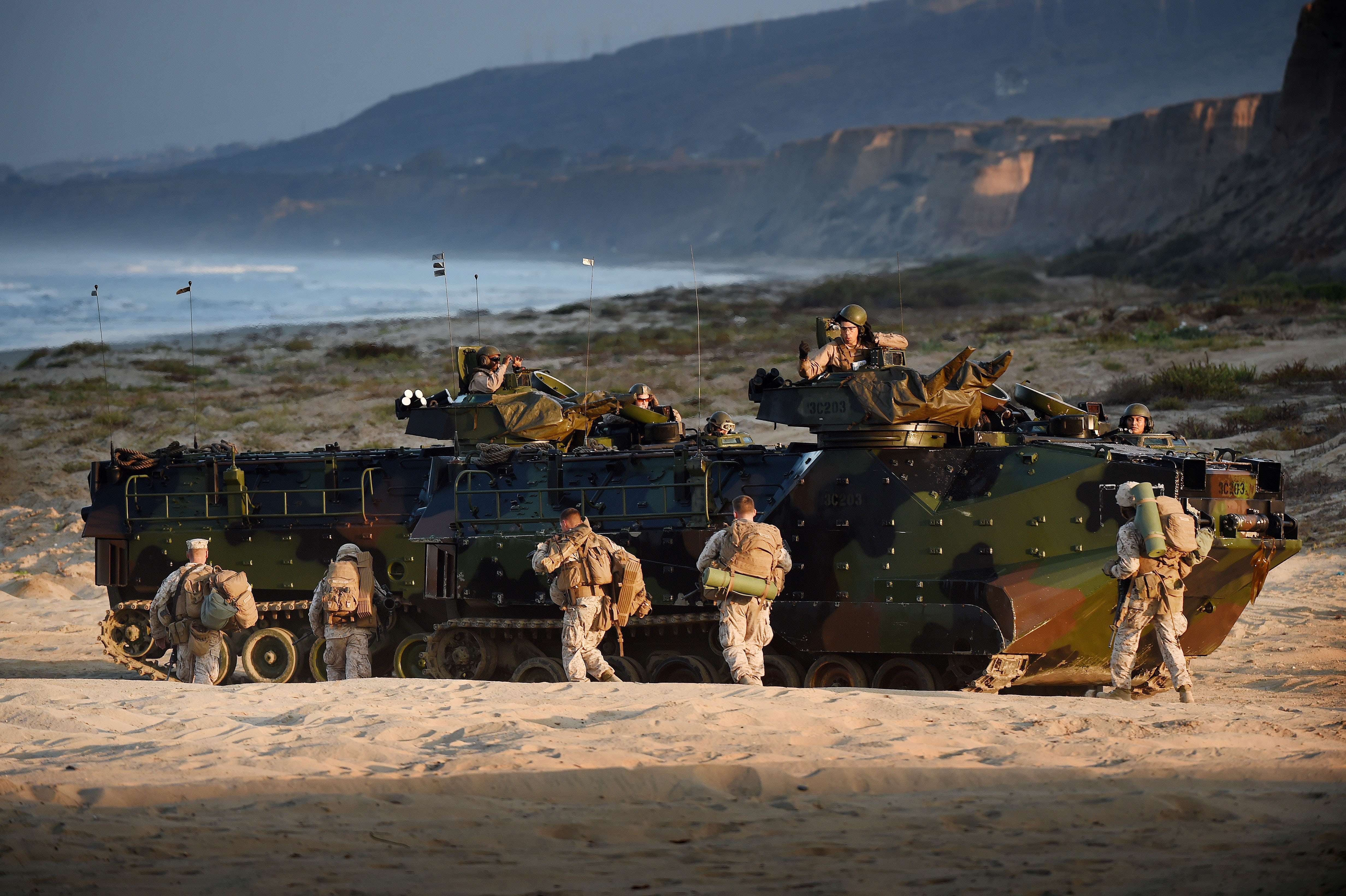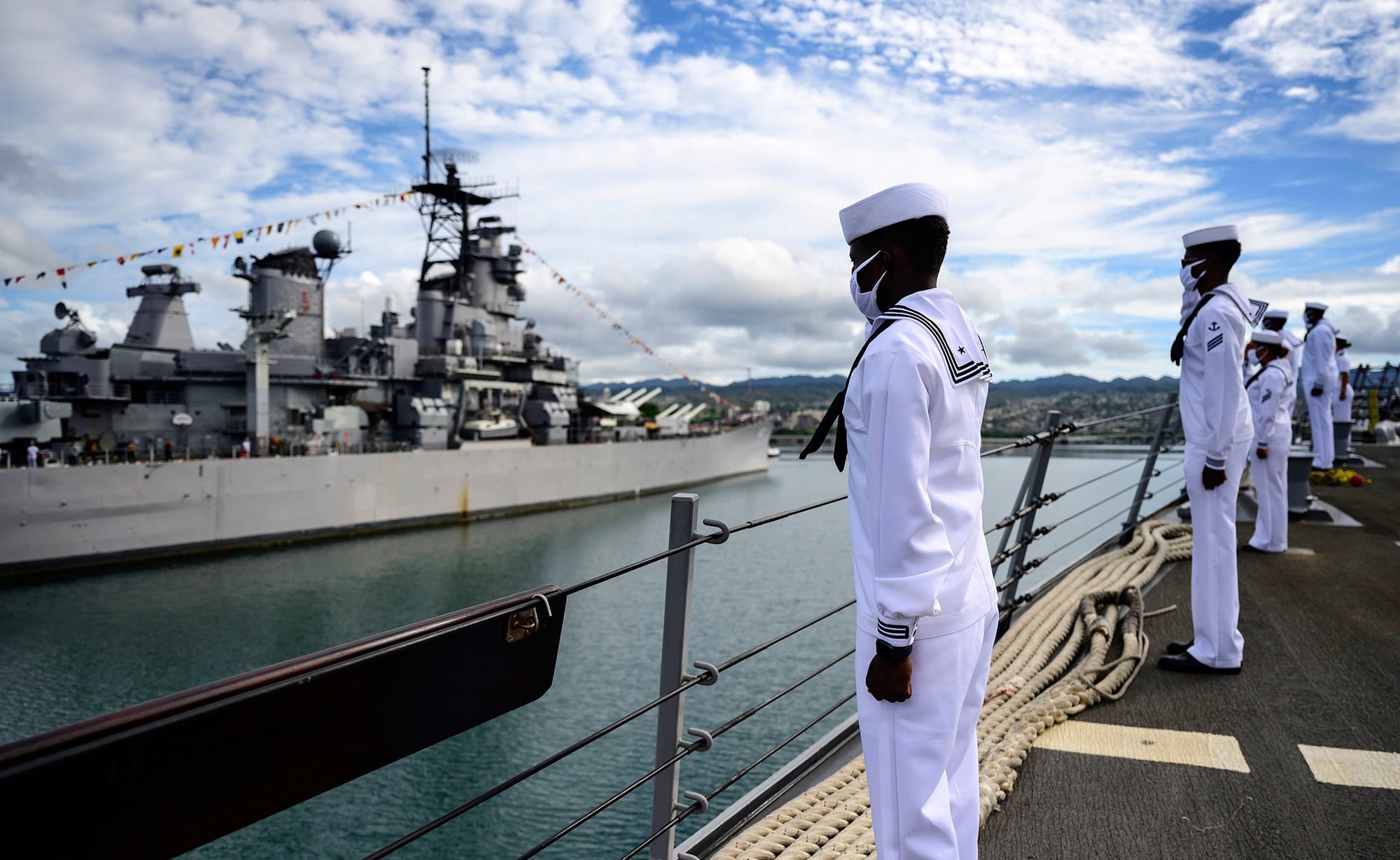HONOLULU ― As troops, veterans and officials gathered aboard the battleship Missouri on Wednesday to commemorate the 75th anniversary of the Japanese surrender to end World War II, Defense Secretary Mark Esper used his keynote speech to put a fine point on where the post-war world order stands today.
On the final day of an Indo-Pacific trip during which he either met with or held calls with military and government leaders from Hawaii to Papua New Guinea, Esper didn’t call out China by name for flexing its economic and military muscle in the the region, but his choice of words left no questions.
“Today, in the face of new challenges to this free and open order, we are working to build an even broader coalition of partners — one that includes both longtime friends and former adversaries — to protect the hard-fought gains of generations past and present, especially in the Pacific,” he said. “We share an important goal — defending the sacred principles that benefit us all: democracy, liberty, sovereignty, human rights, mutual respect, and the rule of law.”
The Defense Department has turned much of its attention to the Indo-Pacific, in the face of China’s growing military power, specifically.
Part of that has included reaching out to many of the countries in the region, offering support and opportunities for military cooperation, in a bid to bring them into the fold.
“Growing, deepening, and unifying this network must remain central to our collective strategy to ensure peace and prosperity for another 75 years and beyond,” Esper said. “We welcome every nation — especially those that have benefited the most from today’s international system — to join us in this effort.”
RELATED

For service members, it could mean more rotational deployments to Asia and the Pacific islands, with less of a focus on permanently-based troops in traditional strongholds like South Korea and Japan, an INDOPACOM official told reporters Monday.
“The United States’ commitment to the world today is the same one we made to the freedom-loving people of the world in 1941: that we will remain ready to fight any foe and defend any friend; and, that we will safeguard our values and all that we hold dear, at every turn, in any place,” Esper said. “We will not back down, and we will not yield. Freedom is far too precious to do otherwise; and the sacrifice of those who came before us, far too great.”

Meghann Myers is the Pentagon bureau chief at Military Times. She covers operations, policy, personnel, leadership and other issues affecting service members.





